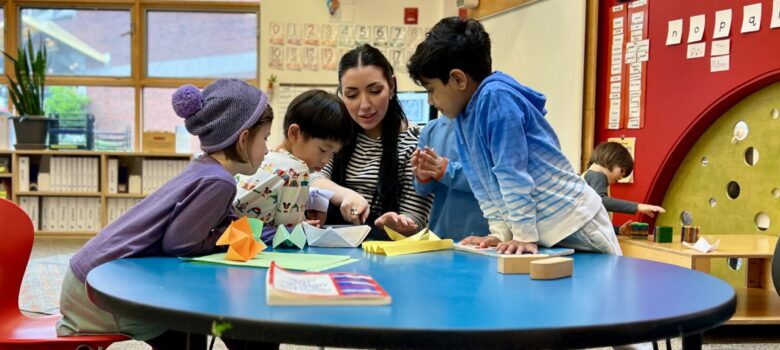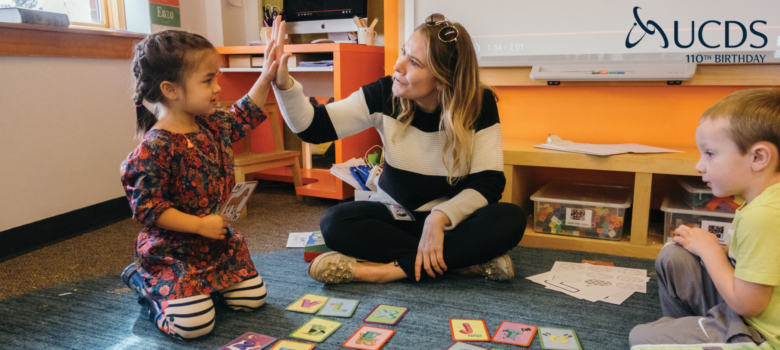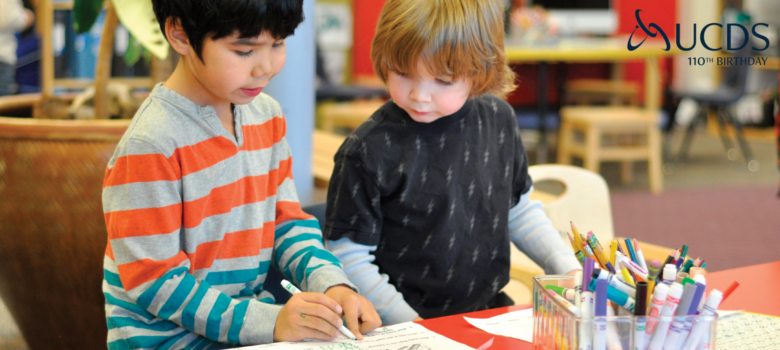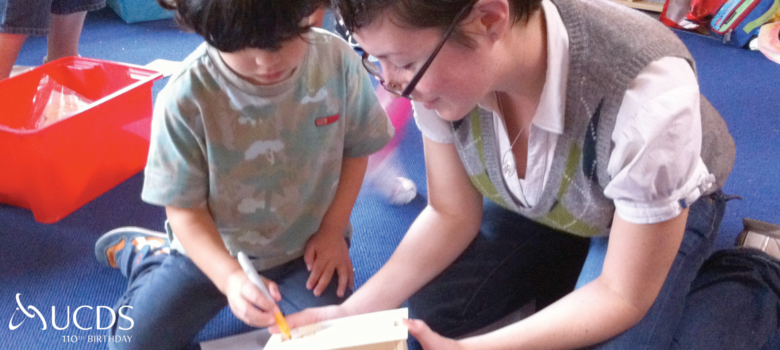Here’s 3rd and 4th grade teacher Kat Wyly’s final entry for the season on information literacy in digital spaces. -Ed.
________
At UCDS, the Experienced Teacher Cohort (a rotating group of teachers chosen each year) take on a topic every year with the goal of educating the entire faculty and staff. A few years ago their subject was digital citizenship. They tackled questions about how to educate students to participate in an online community so they can understand both the benefits and potential hazards they could come across. The goal was to build awareness in students so that they were responsible for their actions in an online setting just as they are responsible for their actions in our own school community. A lot of the discussion revolved around how students as individuals can be safe in this online community. It is crucial, however, to extend the conversation around digital citizenship to guiding our students how to sort through the variety of information that comes from external resources. Whether inaccurate reporting or an extreme opinion, it feels as though both generations are still in the process of learning how to gauge the accuracy and bias of some messages. With this increase in education around news literacy, how can we measure whether kids and adults are gaining fluency in their comprehension?
The Organization for Economic Cooperation and Development(OECD), who distributes the Programme for International Student Assessment (PISA), is in the process of developing a way to gather such data. The aim of this triennial test is to evaluate how the educational systems in a variety of countries are addressing certain topics. Right now the test assesses reading, math, science, financial literacy, and collaborative problem solving. The results provide one method of holding countries accountable for their curriculum, although of course standardized tests are not the end all and be all (my opinion!) With test results in hand, countries decide where they will allocate their educational reform efforts. Andreas Schleicher, PISA’s director, recently shared news that there are plans for a test for global competence. This will measure how students in different countries are educated in their school systems to think about diversity and multiperspectivism and how they can apply this knowledge to analyze global issues. This assessment is still in the works, but the OECD is prioritizing initiating the process of holding countries responsible for facilitating growth in critical thinking, news literacy, and understanding societies beyond their own. To me, this confirms that math, science, and reading are skills that need to be coupled with an awareness of the diversity of the world. Although just a test, it is exciting to think about the real life application content that OECD is encouraging to be taught globally.
I will end this blog series with a cool exercise that I found on Auburn University’s website to get you thinking a little further.
Below is a list of incomplete sentences. Complete each one with the first word that comes to mind. Don’t stop to evaluate what you write or change your first response. If you can’t think of a word or phrase, skip it and go on to the next sentence.
• Teachers are ___________________________________________.
• Mothers are ____________________________________________.
• Democrats are __________________________________________.
• Communists are _________________________________________.
• Police officers are ________________________________________.
• Welfare recipients are_____________________________________.
• Elderly people are ________________________________________.
• My neighbors are _________________________________________.
• Republicans are __________________________________________.
• Lawyers are _____________________________________________.
• Girl Scouts are ___________________________________________.
• Football players are_______________________________________.
Check out if your answers are facts or opinions! Do you see a lot of opinions? Take a moment and reflect on where your biases may come from. These inform other people’s opinions when you have a conversation with them!




